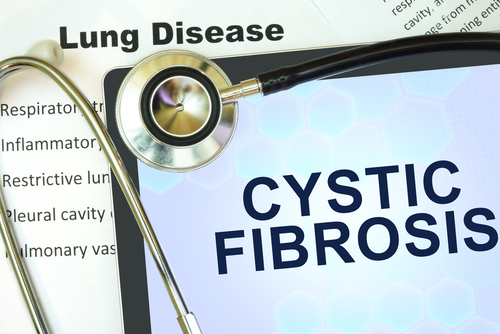Galapagos has started a Phase 1 clinical trial of its novel potentiator GLPG3067 for cystic fibrosis (CF).
It is the second Phase 1 trial the company is conducting. The other one involves another therapy.
Galapagos and AbbVie have been working together since 2013 on a triple-combination treatment that addresses the defective protein that causes CF, the cystic fibrosis transmembrane conductance regulator (CFTR).
One goal of the combination therapy is to restore the normal activity that the CRTR protein loses when it becomes defective. This means that one of the triple combination’s drugs will be a corrector drug.
The CFTR protein is an ion channel that crosses the membranes of cells that produce mucus, sweat, saliva, tears, and digestive enzymes. A potentiator drug enhances this role.
The new randomized, double-blind, placebo-controlled, single-center study will assess the safety, tolerability and pharmacokinetics — or drug properties — of oral doses of GLPG3067. Researchers plan to administer ascending oral doses of the potentiator to at least 48 healthy volunteers in Belgium.
In the first part of the study, the research team will evaluate single ascending doses of GLPG3067. The second part will assess multiple ascending doses administered daily for 14 days. The third part will evaluate the safety and tolerability of a combination of GLPG3067 and the corrector drug GLPG2222 administered over 14 days.
Galapagos is already conducting a Phase 1 study (NCT02788721) of a combination of GLPG2451 and GLPG2222. As is usually the case in Phase 1 trials, the drugs are being administered to healthy volunteers. GLPG2451 is a potentiator and GLPG2222 a corrector.
GLPG2222 is the first early binding corrector in Galapagos’ portfolio. It is designed to stem and partially restore the defective CFTR gene’s F508del mutation. GLPG2451 is the company’s second potentiator, and its third compound, to become the subject of clinical trials.
Galapagos plans to add the corrector GLPG2737 to the GLPG2451/GLPG2222 regimen to make it a triple combination. The idea is to test it first in healthy volunteers and then in CF patients with the F508del mutation. The three drugs use different mechanisms of action to restore the proper functioning of the CFTR protein.
“We continue to explore additional molecules to enrich our growing portfolio of cystic fibrosis drug candidates,” Piet Wigerinck, the chief scientific officer of Galapagos, said in a press release. “We plan to initiate multiple studies within our CF portfolio in the course of this year, as we get closer to our goal of initiating a patient evaluation of a triple combination therapy by mid-2017.”
Under their partnership, AbbVie will give Galapagos $7.5 million for the Phase 1 study that involves GLPG3067 . Galapagos plans to report the trial’s results at a future medical meeting.
In February, Galapagos administered the first dose of GLP2222 in a Phase 2a clinical trial assessing the therapy as an odd-on. The trial, ALBATROSS, will look at the drug’s effectiveness as an add-on therapy to Kalydeco (ivacaftor). It will be tested in CF patients with one F508del CFTR mutation and one gating mutation.

